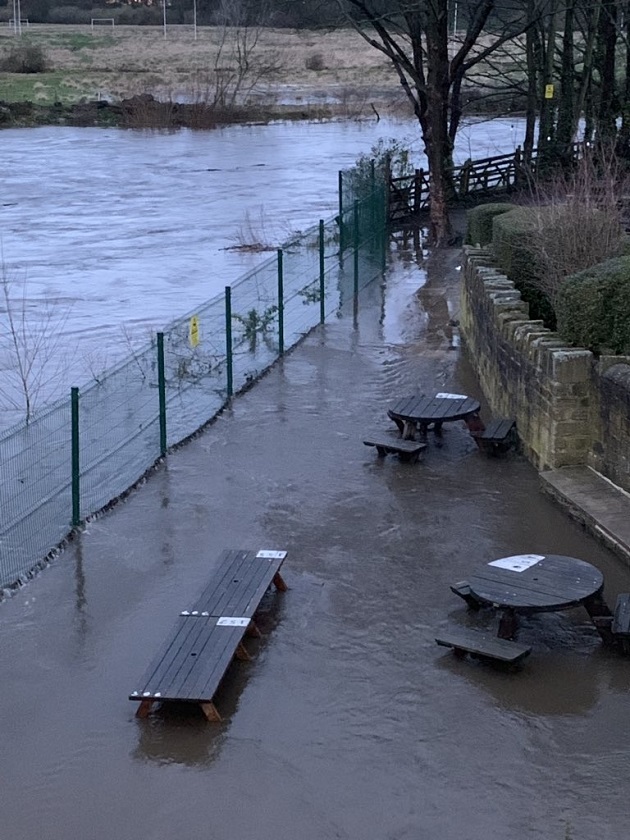Hundreds of trees have been planted as part of the first project to trial natural flood management techniques to help improve protection for the people living near the River Aire.
The pilot site on a working farm at Eshton Beck, Gargrave now has 650 new trees planted by staff and trainees from Yorkshire Wildlife Trust and volunteers.
The scheme follows the Boxing Day floods of 2015 which caused widespread flooding in the Kirkstall and Burley areas.
Yorkshire Wildlife Trust has also worked on three further pilots on the same site, with a whole host of volunteers from the Environment Agency, Leeds City Council, Yorkshire Water, The Conservation Volunteers, Craven Conservation Group and SCAPA, a firm based in Gargrave.
They were also helped by students and staff from Leeds University and NVQ trainees from Craven College.
The flood alleviation work involved building 66 log and brash leaky dams, planting a further 850 trees, woodland management, using timber to prevent bank erosion and installing 200m of fenceline and a water gate to protect the new trees from nearby grazing stock.
The aim is to see how natural techniques can slow the flow of water and reduce the risk of flooding downstream.
The trees include dogwood, guelder rose, downy birch, alder, and willow which will be planted along with hedgerows of hawthorn, blackthorn and hazel. Other measures carried out at part of the project include fencing works, creating leaky barriers and woody dams and stabilising river banks.
This £500,000 pilot programme, funded by Leeds City Council, uses natural methods to slow the flow of water from upstream in the catchment. This includes land management to reduce water run-off, woodland creation to increase tree canopy cover and river and flood plain restoration so that the landscape can hold more water in times of flood.
These pilot sites will allow the team to monitor and research the techniques used to gather evidence and increase their understanding of the benefits they provide for reducing flood risk.
Chris Milburn, Project Executive at the Environment Agency said:
“This work at Eston Beck contributes to local flood risk reduction and wider environmental benefits, slowing the flow of water locally and to downstream communities.”
Don Vine, conservation officer with Yorkshire Wildlife Trust, said: “This has been a great project. We have had support from the landowner and real interest from neighbouring farmers – with so much assistance from so many different volunteer groups; from university students to local NVQ trainees and a Gargrave based corporate group. We have already seen some small changes along the watercourse due to our recent work and we will be monitoring all these interventions over the next few years to measure impact – not only river flow, but also water quality and wildlife.
The natural flood management pilot forms part of the Leeds Flood Alleviation Scheme, led by Leeds City Council in partnership with the Environment Agency, which has a catchment wide approach to flood risk as it enters its second stage.
The second phase of Leeds Flood Alleviation Scheme has a strong focus on natural flood management, with proposals to create new woodland areas which would more than double canopy coverage in the River Aire catchment.
It focuses on protecting the Kirkstall corridor, which was badly hit by the 2015 Christmas floods, and areas beyond the city boundary to further reduce the possibility of the river flooding in Leeds.
For more information on the project, visit this website.

